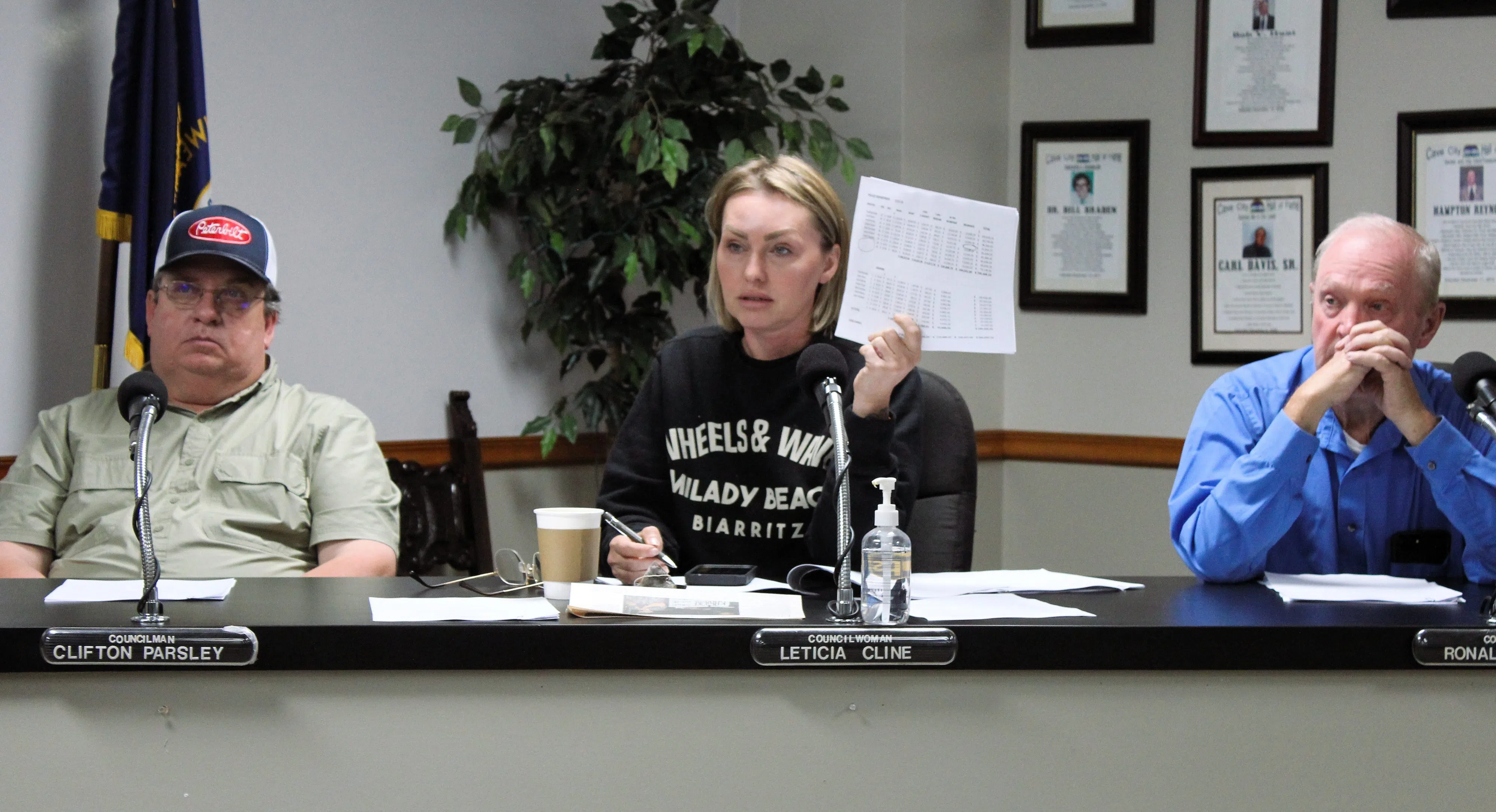By GAGE WILSON
For Glasgow News 1
June tends to be a busy month for most cities, with the fiscal year winding down. Cave City is no exception, as city council members met for a second time this month to discuss the town’s financial future.
Since last week’s meeting — at which the council passed the first reading of the budget for the fiscal year that begins July 1 — city administrators are projecting a surplus of over $240,000 in the general fund by the end of the 2025–26 fiscal year.
According to Ordinance No. 25-9-6b, the city plans to spend just under $3.84 million out of the general fund. The bulk of that — more than $3.1 million — will go toward general government services, with police, fire, parks, and sanitation making up the rest. For industrial expenditures, Chapatcha Park has been earmarked $48,000 for operations, plus $250,000 in projected revenue.
The city’s cemetery fund, often a quiet line item, is expected to run a surplus as well, with roughly $113,000 left after next year’s expenses. Road funding through state aid is also projected to come in under budget, with about $19,000 left unspent.
These numbers mark a notable shift from the city’s amended current-year budget, passed under Ordinance No. 25-6-9. That version updated previous figures based on more accurate returns and spending trends, particularly in areas like property tax, which came in higher than expected, and city services, where some costs were adjusted down.
Questions came quickly as Councilwoman Leticia Cline asked for clarification on how the projected $270,000 Alcohol Beverage Control revenue can be spent.
“Cause we were talking about how it could only be spent on certain things…, what is it spent on exactly?” she asked.
Mayor Dwayne Hatcher said, “We can pay some police salary percentage, but we are looking into the different ways we can spend that.” He went on to explain that the city has used the money on traffic safety campaigns utilizing signs throughout the area.
Councilman Brandon Wright added that the revenue may also help pay for body cams for the local precinct.
“We’re going back to get a percentage of what we can use for the body cams,” the mayor said. Hatcher explained that the city would need to go back “at least a year” to document DUI charges and alcohol-related crimes before being able to give an exact figure that could be spent in other areas.
Cline at the last meeting also pointed out a deficit in community engagement. In response, Hatcher said that the city has moved $5,000 back into the fund, not affecting bottom line numbers, while still shoring up the account.
With that, the second reading of the ordinance for the upcoming fiscal year was passed.
The next agenda item regarded the city’s discrimination policy and the adoption thereof. This item comes as a bureaucratic requirement for the Community Block Development Grant for the the city’s Boys and Girls Club. Mostly focusing on compliance with the Americans with Disabilities Act, the policy passed with little discussion.
Finally, Hatcher exhumed a long-standing topic, apprising members of the relocation of around 20 forgotten graves discovered on the Branstetter property — part of Cave City’s Mid-South Industrial Park — that are being relocated to make way for future development.
The graves, which genealogists believe belong to members of the Shaw, Overstreet, and West families, had long been hidden by overgrowth and neglect. Local researchers Scott and Ann Fife helped identify the cemetery and traced living descendants, including Peggy Hill of Virginia, who confirmed her grandmother was among those buried there and gave her blessing for the relocation.
Representatives for the property owner, Kentucky Industrial Alliance LLC, have appeared before the Barren County Fiscal Court in March to request the move, which must follow state-mandated procedures.
The graves are slated to be relocated to Cave City City Cemetery at the expense of the business; however, some in the community oppose the change. Hatcher explained that while the Barren County Fiscal Court has authorized the relocation, due to dissenting views, city attorney Bobby Richardson will have to return to the court.
“They authorized it, but in able to do it, they give everybody an opportunity to object to it,” Richardson said. “They’ll listen to their objections and then finalize the authorization.”
Hatcher said that the city’s cemetery commission has consented to the relocation. According to Hatcher, the development group did agree to payi $500 per grave plot for the “20 to 25” individuals currently occupying the commercial space.
“We have everything lined up to make that happen.” Richardson said that he would be “in court tomorrow to try to get it done.”

Comments